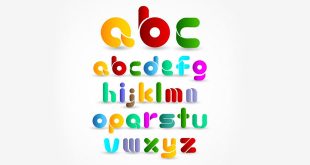Jargon Words
Jargon At Work Place
You are likely to find many examples of jargon in the work place, in malls or cafe, of the typical work place terms that are used. In most of the cases, these terms might also be referred to as workplace metaphors used either in the cubicle or in the pantry among colleagues. This practice apparently originated in the United Kingdom as euphemism, but later became jargon which was equally used by the manager and staff. Certain examples of jargon at work place are listed below:
- Land and expand: To sell a small solution to the client that later expands and caters to more problems in the environment surrounding the client.
- Think outside the box: A constantly used jargon that indicates widening the limits of the thought process so as to encourage people to be creative regarding their job views.
- End user perspective: This is a critically used term at workplaces, as it describes the customer requirements of a product. This also focuses on how the client would feel after using the so-designed product.
- Pushing the envelope: In order to attain a target, the corporate forward their ideas further and this goes by this jargon.
- Drink our own champagne: Here, champagne indicates ‘a good product’. This jargon indicates that the products sold to the clients are the same as the one being used in the business.
- Get our ducks in a row: Getting prioritized in order to ensure that efficient and effective organization of everything in the work place.
- The helicopter view: Simply signifies an overview of things.
- Blue sky thinking: An imaginary procedure without the practical application
Jargon In Business
In business, jargon is an inevitable tool used for marketing purposes. This field, being particularly customer oriented, has to deliver apt words in order to promote investment.
- Ahead in the count: Signifies that you are doing well and are ahead of your peer competitors.
- Get your ducks in a row: Indicates you are all ready and planned for the project that you are about to undertake shortly.
- Connect ear-to-ear: This simply means to speak about the project over the phone.
- Plug and play: Deals with anything that does not require much thinking for the implementation of the product.
- Cookies: Specifies computer jargon referring to the saved web passwords, websites and your shopping cart preferences.
- Business jargon also includes terms like, core competency, brain dump, bullish, free lunch, food chain, hired guns, behind the eight ball, ball park, bait and switch, actionable, circular file, best practice, face time, fall guy, game changer, head count, fall guy, in the black, in the loop, in the red, push back, traction, talk turkey, time frame, value added, put to bed, rubber check, not invested here, stake holders, out of pocket , zero sum game, etc.
Other Examples Of Jargon
Computer Jargon
This would include both mail and chat jargon.
- BTW – By The Way
- IMHO – In My Humble Opinion
- MOTD – Message Of The Day
- FAQ – Frequently Asked Questions
- CYA – See You Around
- HTH – Hope This Helps
- FYI – For Your Information
- LOL – Laugh Out Loud
- PFA – Please Find Attached
Other Computer Jargons
Browser, folder, network, fragmentation, CPU, crash, database, download, resolution, keyboard shortcuts, mouse, virus, URL, upload, software, plug and play, interface, file, driver, cache, chip, cookie, freeware, gopher, hardware, operating system, spam.
Baseball Jargon
Big league, pickoff, pinch hitter, position, power hitter, loud out, at bat, good eye, grand slam, rally, relay, sacrifice hunt, strike zone, take a pitch, tea party, tipping pitches, MVP, bases loaded, Hall of Fame, hit by pitch, home run, stayed alive, stolen base, golfing, caught looking, changeup, balk, choke up, go-ahead run, position, alley(or gap), sacrifice fly, dig it out, assist, advance a runner, ahead in the count, etc.
Football Jargon
Touchdown, territory, scrambling, loose ball, kickoff, man-in-motion, down, end zone, goal line, hand-off, offside, picked off, recovery, audible, blitz, clipping, down.
Common examples of Jargon
- On cloud nine: Extremely happy
- Sweet tooth: Someone who loves sweets is said to have a sweet tooth.
- Shrink: Psychiatrist
- Gumshoe / Private Eye: Detective
- Poker face: Blank or unreadable expression
- Ball park figure: A value that is numerically estimated
- UFO: Unidentified Flying Object
- Back Burner: Low priority given, something put off till a date
Peter Ives once remarked about jargon that, ‘For those who use it, it is a language which describes the world in which we live’. Jargon, is indeed a powerful tool that can be used to create an impression on people’s minds. Once you get to use the right jargon in the right context, right timing and to the right person, be it among your colleagues or staff, you are sure to make the right impression. Hope this article has provided you enough insights in jargons and encouraged you to use it with your friends, at the right time of course!
 Class Notes NCERT Solutions for CBSE Students
Class Notes NCERT Solutions for CBSE Students


